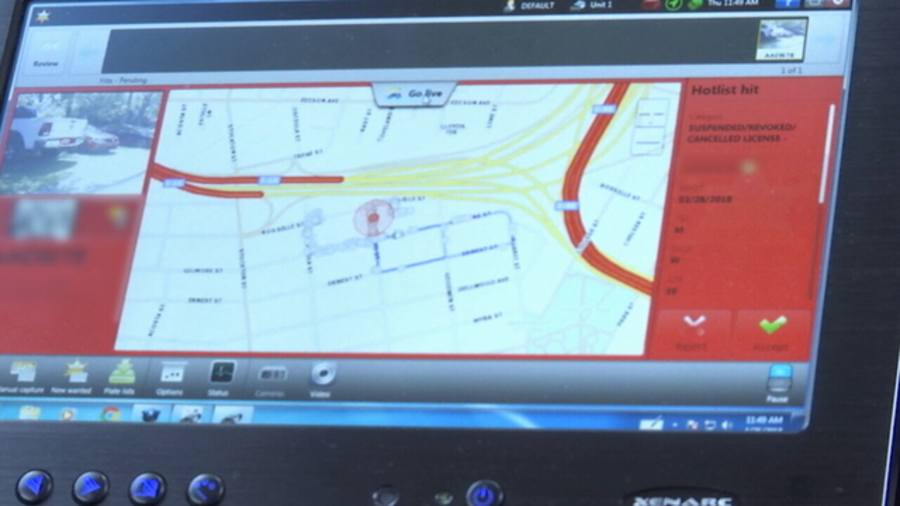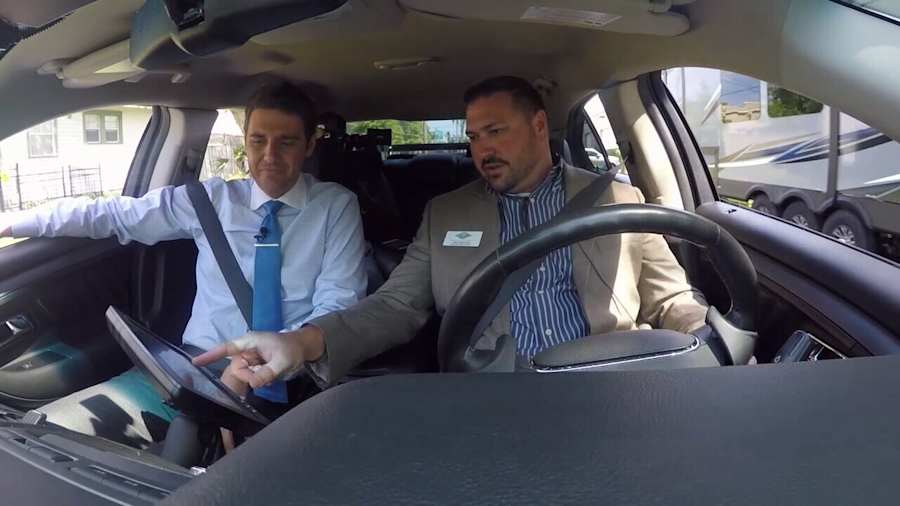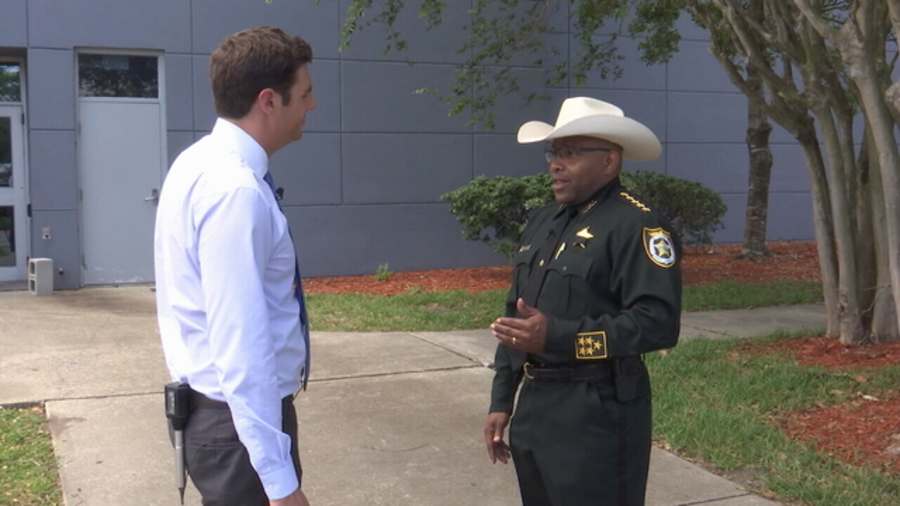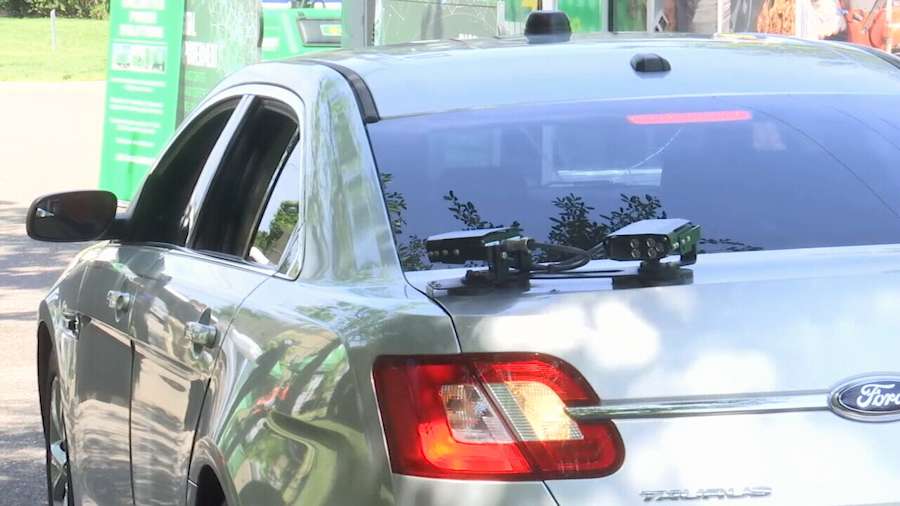GREEN COVE SPRINGS, Fla. – It's new technology allowing local police officers to solve cases faster, whether they're in search of dangerous criminals, missing people or stolen cars. But some civil rights organizations are worried this form of "Big Brother" could violate your privacy.
The new tech is called Automatic License Plate Readers, or ALPRs, and each one can cost about $30,000. It can scan up to 1,800 license plates per minute across four lanes of traffic at speeds of up to 150 mph.

"I have had the car on I-95, and it is reading over the median, through fences and getting tags," explained Tom Harley, with Miller Electric Company. "You turn a normal officer into someone that is doing the work of about four people in the same time frame."
Hartley sells the technology for Miller Electric, a Jacksonville-based company that installs, services and maintains the equipment.
"So you will see it reading these plates over here on the left," he showed us. "See how quickly it’s doing that?"
"So it’s just like scanning groceries?" we asked.

"Yep, and it is marking our GPS reads where we are," he answered.
As we were seeing how this technology works, it only took a few minutes for us to find someone with a revoked or suspended license. It comes up on the reader as a "hit," alerting police immediately after running it through local, state and federal law enforcement databases.
"Each time there’s a tag on there, it actually shows where the tag has been read," Hartley explained.

Within the past month, the Clay County Sheriff's Office started using the technology. Sheriff Darryl Daniels said his deputies tested it out at the Clay County Fair and they were amazed at how many violations they found.
"During a five-hour period, they were a little over 500 hits from that reader," said Daniels. "Things such as suspended drivers licenses, deadbeat dads, arrest warrants, stolen vehicles, stolen tags."
The Sheriff's Office spent around $15,000 to buy a demo vehicle from Miller Electric Company, but Daniels said he thinks it will pay off in no time.
"I like to be proactive. I like to see what is out there that we can use to enhance our quality of service for our community," he said.

Right now, deputies in St. Johns County are testing the scanners in a pilot program. A supervisor told us in the past month, they've used the readers to find several stolen vehicles and make multiple arrests -- including a wanted child predator and a homicide suspect, both from out of state.
The Putnam County Sheriff's Office is in the process of implementing mobile and fixed ALPRs, and we're told the agency plans to have them operational in the next 90 days.
"We (Putnam County Sheriff's Office) decided to utilize automatic license plate readers because they are a very effective life safety tool," Col. Joe Wells said. "ALPRs have a documented successful history of locating missing and endangered persons and dangerous individuals very quickly."
Flagler, Alachua and Nassau Counties are all using it, too. Nassau County Sheriff Bill Leeper told us his agency has three vehicles with the license plate readers, and is so far pleased with the results.
In Southeast Georgia, the Camden County Sheriff's Office is using the technology on one patrol unit, and the Glynn County Police Department confirms it's testing it on one of its vehicles, but has no immediate plans to purchase it.
While more and more local agencies do starting to use it, the technology comes with some controversy.
The American Civil Liberties Union is warning people that they are being tracked. The software has the capability of recording tags, locations and other information about all license plates scanned in public places and in plain view -- not just violators. The ACLU argues that information collected can potentially be stored in databases forever.
Similar technology, though with less access, can be used by private security and repo companies, leaving a breadcrumb trail of every place you visit and when you were there.
GPS tracking has been taken up in a federal appeals court. In a 2010, judges ruled:
“A person who knows all of another's travels can deduce whether he is a weekly church goer, a heavy drinker, a regular at the gym, an unfaithful husband, an outpatient receiving medical treatment, an associate of particular individuals or political groups..."
The ACLU is now listing the following demands for the future.
- License plate readers may be used by law enforcement agencies only.
- The government must not store data about innocent people.
- People should be able to find out if plate data of vehicles registered to them.
- Law enforcement agencies should not share license plate reader data.
- Any entity that uses license plate readers should be required to report.
For now, police have all the rights to use this license plate reading technology, in the hopes of catching criminals faster and making our streets safer.



